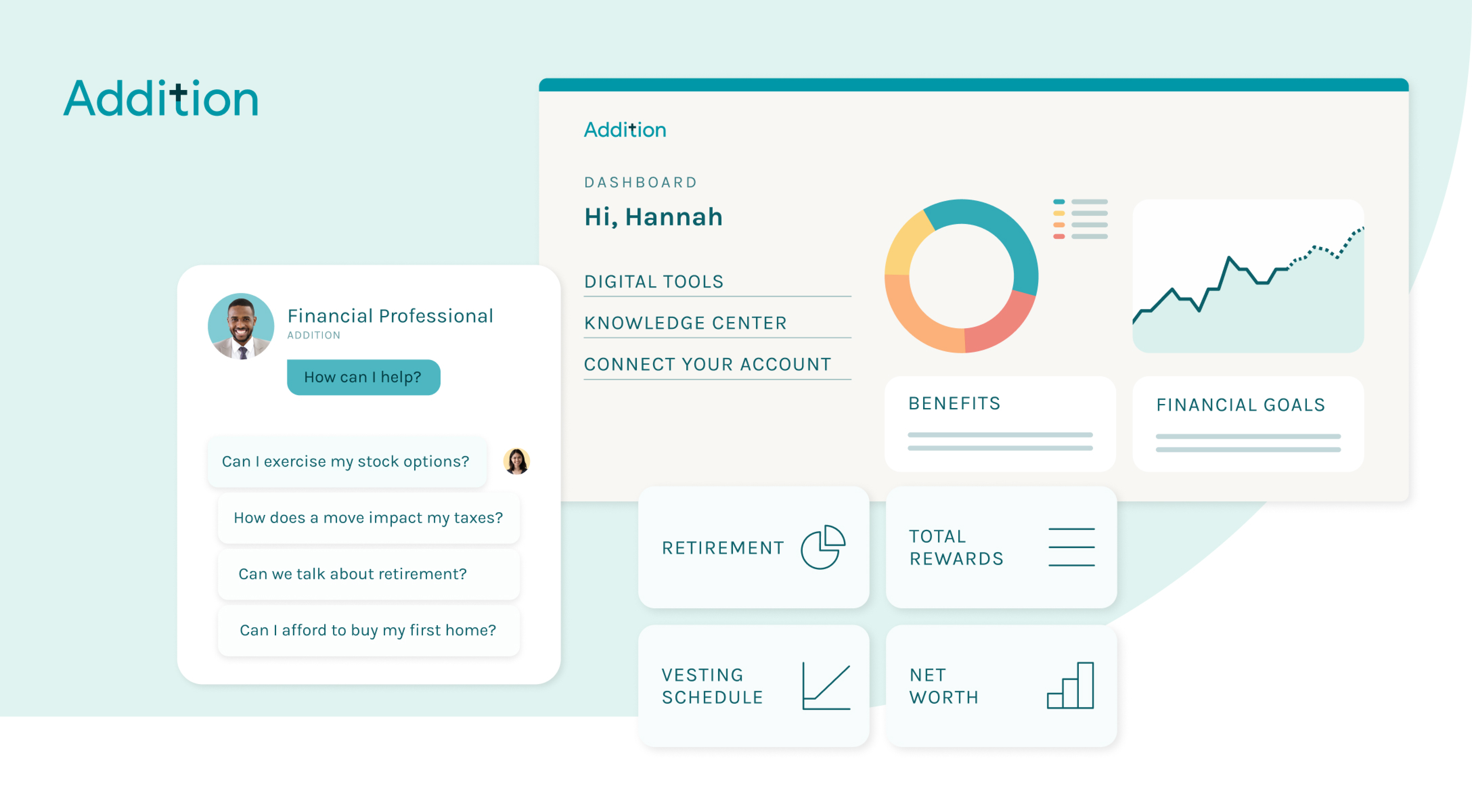Employees can count on Addition Wealth for free, holistic financial planning services
As companies fight to retain workers amid the “Great Resignation,” many are offering enhanced benefits packages to employees. Financial wellness benefits, in particular, are on the rise, especially those that provide access to personalized or tailored advice. New York-based Addition Wealth, which launched to the public today, is catering to the 87 percent of U.S. […]

As companies fight to retain workers amid the “Great Resignation,” many are offering enhanced benefits packages to employees. Financial wellness benefits, in particular, are on the rise, especially those that provide access to personalized or tailored advice.
New York-based Addition Wealth, which launched to the public today, is catering to the 87 percent of U.S. employees who say they want help with their personal finances, according to a 2021 survey by PwC. Founded by Uber Eats’ former head of cities, Ana Mahony, Addition partners with employers to offer workers personal finance tools, community events, and professional financial advice.
The entire suite of products is free for employees, while companies pay a recurring fee to Addition, Mahony told TechCrunch in an interview. Providing Addition’s services only as a bundle discourages companies from upselling their employees on individual products, she added.

Addition’s platform Image Credits: Addition Wealth
Addition launched in fall 2021 with its first corporate customer, and according to Mahony, serves several prominent tech companies representing thousands of employees today. Her goal with Addition is to help customers regardless of their background, financial goals, or level of wealth.
“Most people that can get access to a lot of this information either come from circles of wealth or they have enough money to be able to pay sophisticated folks to help them navigate these decisions,” Mahony, who worked in consumer finance before joining Uber, said. Women and people of color, she added, are disproportionately harmed by a lack of access to financial planning tools – a population she hopes to serve through Addition, which does not have any financial requirements for users to join.
The current financial planning products available to individuals are either too generic to be useful, or prohibitively expensive if they are personalized, Mahony said. Addition seeks to fill what Mahony sees as a gap in the market through a combination of self-service tech tools and group-based as well as individual advice. Mahony described Addition’s community events as “office hours” for employees to inquire about particular topics, while the company also connects users with vetted financial advisors through a partnership with a network she did not name.

Addition founder Ana Mahony Image Credits: Addition Wealth
Partnering with companies rather than providing services directly to users, she added, helps Addition create a more customized offering by leveraging data on the companies’ employees and their specific financial needs.
One of Addition’s key differentiators is its deep expertise in helping employees navigate the complexities surrounding equity compensation packages, Mahony said. The startup even advertises a solution on its website that helps employees assess the value of job offers they receive. This expertise has led to strong inbound interest in the product from tech companies, according to Mahony.
The holistic nature of the offering also makes it stand out against other solutions, which tend to be focused on a singular aspect of an individual’s finances rather than the bigger picture.
“When you think about the places where traditionally you can get support, you might have a retirement plan provider who will talk to you about how you should allocate your, your 401k, or even think about pre-or post-tax, but they’re not going to help support you on [assessing] your credit card debt, or if you should invest more in retirement,” Mahony said. “In addition to the various topics that we’re helping people work through, we actually help on a lot of trade-off decisions as well.”
In conjunction with its public launch, Addition announced that it has raised $4 million in seed funding led by Nyca Partners with participation from venture firms including Core Innovation Capital, Anthemis Group, Fin Venture Studio, and others. Angel investors who have helped build fintech companies Acorns, Affirm, Betterment, and Revolut also participated in the round, the company said.







